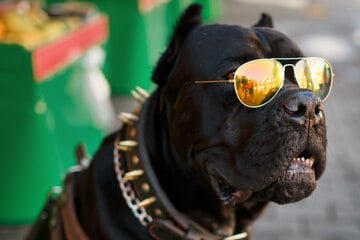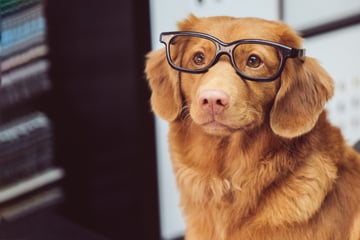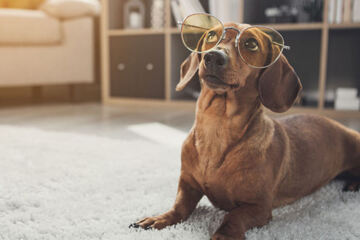How to train puppies: Why, how, and when to start training your dog
They might be as cute as a button, but behind those adorable eyes are souls in need of taming! Younger dogs can be wild if left unchecked, so here's how to train your puppy and guarantee a lifetime of good behavior.
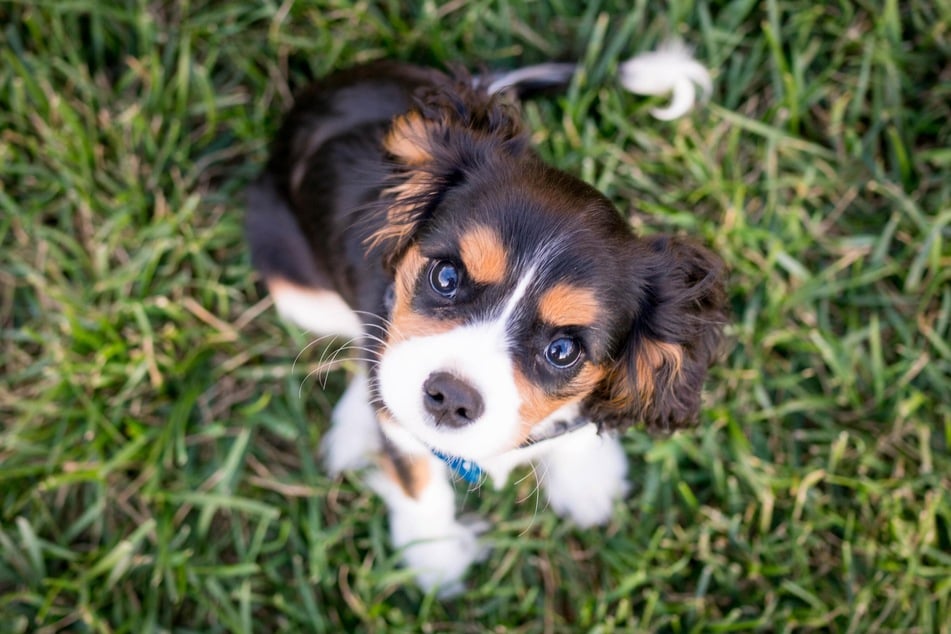
A well-trained pup is more than important, no matter whether your new doggo is from a shelter or from a shop.
Young dogs are curious creatures, capable of learning critical skills that will not only improve their behavior, but provide physical and mental health benefits as well.
An untrained dog is as unhappy as its owner, living in a constant state of confusion and stress that isn't good for anyone.
TAG24's dog guide will take you through everything you need to know about puppy training.
How do you train a puppy, when should you start, and what you should avoid?
Why should you train your puppy?
It's incredibly important to start training your dog at a young age, when it's still a puppy.
This will strengthen confidence, provide physical and mental health benefits, and increase positive behavior. As a dog gets older, it becomes harder to properly train them, and you will start to see the negative implications of an untrained pooch.
While it could never be considered too "late" for training to be beneficial, you want to see those benefits as soon as possible. Training your puppy allows you to get its toilet habits in order, keep it out of the bed, reduce any aggression it may have, and prepare it for the outside world and its relationships with other canine companions.
How to train your puppy
There are a huge variety of different training methods for dogs, most of which apply to both fully-grown dogs and puppies alike. They will introduce different skills, abilities, and behaviors, depending on the method, and as a result, it is important to get a balance.
Here are a few useful ways to train your puppy:
- Fantastic puzzle games increase your puppy's mental capacity and keep its mind sharp.
- Dog agility training helps to keep your puppy's body fit and healthy.
- Clicker training helps to instill obedience.
- Leash training shows the most results when it's done early.
- Teaching commands helps instill obedience and authority.
Let's look in more detail at the specific areas where puppy training is particularly important.
Should your puppy sleep with you?
We get it, keeping your hands off your new puppy can be hard. But drawing a line where the bed begins is crucial. The alternative is sending your dog a message that it will be able to sleep next to you forever, something that could end up being a serious problem later in life.
As a result, there are a few things that you should do to stop your dog from sleeping in the bed with you when it's a puppy:
- Get to them early, never letting them sleep in the bed – make it a "dog-free zone".
- Ensure that your puppy has a comfortable, safe, warm, and close-by spot to sleep.
- That close-by part is especially important, so keep the sleeping basket/bed on the floor in the corner of your bedroom.
- Your presence, as well as familiar sounds, will help your perfect pooch feel comfortable and safe when it's sleeping.
Your puppy needs to be trained with calmness, love, and patience, and should never be hit, yelled at, or challenged too much. You want to create a safe and positive environment for man's best friend, not one that will make it unhappy.
Keep in mind: It will take a few days before your dog stops whining that it can't sleep with you anymore. This is normal. Fight through it, ignore the whining, and instill better behaviors in your pooch.
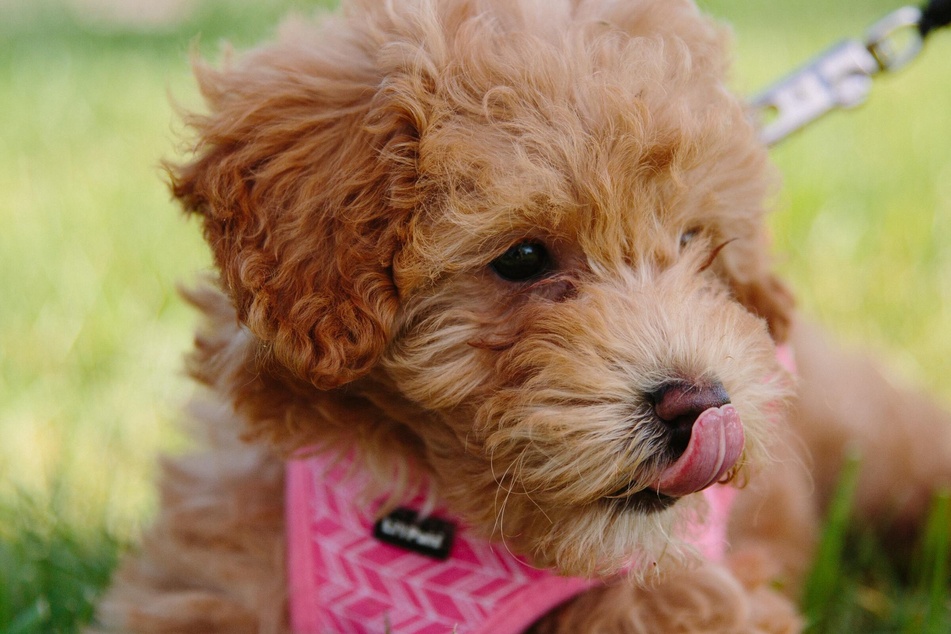
How to house train a puppy
A fixed sleep routine isn't quite enough to get your puppy properly trained. You also want to get this young-as-heck pooch house-trained as well. That means taking it on regular walks and keeping it from wrecking your home.
Here's how to house train your puppy:
- Set up fixed walking times: This is important because it gives your puppy an understanding of when it can release that pent-up energy, and will make it less likely to go crazy inside.
- Puppies that have only just been separated from their mothers should be taken for a short walk every two-to-three hours.
- Your walking route should be relatively quiet and peaceful.
- The walk should be relatively short, to not tire out your tiny friend.
- Quiet and calmness: Your home, as well as the walk you frequent, needs to be relatively quiet, calm, and safe. This goes especially for where you take your dog to the toilet.
- Be understanding: Your dog will have accidents when it's a puppy, and that's okay. Don't overreact, you don't want it to be fearful of you.
- Be ready for a mess: Line your dog's sleeping basket with padded, washable, or disposable materials that will absorb any accidents that may occur during the night.
Affective puppy training is about creating a safe and loving environment for your newborn doggo. That means no anger, no disappointment, just positive reinforcement and a whole lotta love!
How to leash train a puppy
The most important thing when leash training a puppy is to get the right leash or harness before you even begin. Have it fitted, have it ready, and have it checked by the vet before you begin this long, complicated, and difficult journey. You won't regret it!
If you are looking to leash train your puppy, here are a few tips:
- It is vital that your dog understands that you are walking it, not the other way around. This is all about setting limits and never giving in.
- When walking, your puppy should match your pace, rather than you matching theirs. That means it should walk as fast or slow as you.
- The best tactic is standing still as soon as the puppy tugs or pulls on the leash. Only start walking again when the undesired behavior has stopped.
- Once the puppy has reached sexual maturity, don't allow it to mount or hump another dog.
- Safety is a two-way street, so don't do anything that may scare or endanger their puppy.
- If respect is instilled into your doggo, it will behave well when on walks and will enjoy it all the same.
Important: Walks are incredibly important, but they come with their own dangers. Get your pooch used to sitting before you ever cross a road, so that it will never just run out in front of a car.
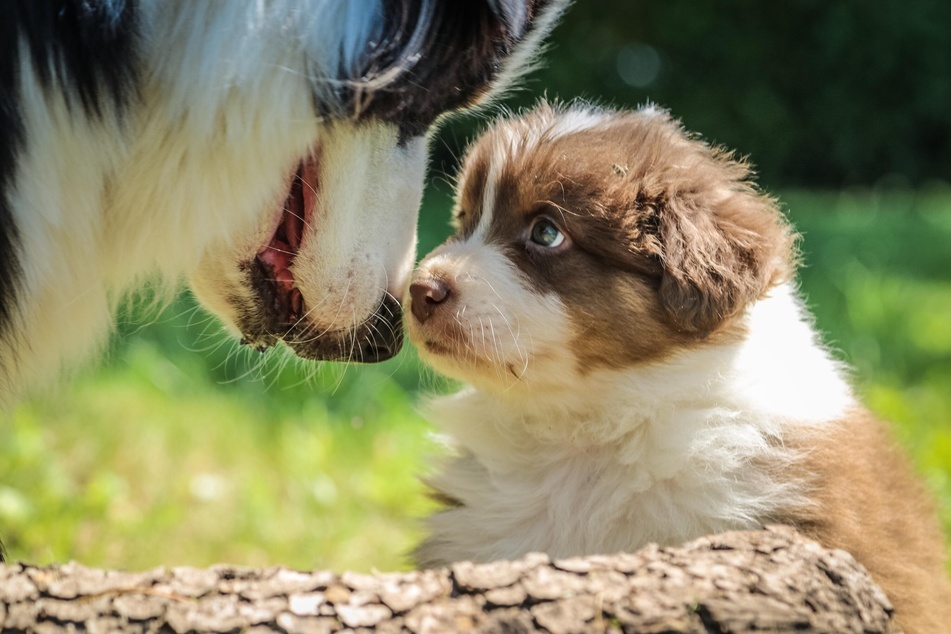
What should I train a puppy to do first?
When it comes to commands, the first words you should teach a puppy is "No", "Sit", "Down", "Come", and "Stay." This is purely for safety reasons. Especially when walking, you need your dog to do what you say. That means staying where it is when necessary, stopping something when you tell it to, and coming to you when you call.
It might seem simple, but it's actually quite difficult to get your puppy to understand your commands. Here are a few tips and tricks:
- Tip 1: Get the timing right – It is crucial that you get the timing of your commands right when training a puppy. Only do the training in five minute bursts, separated by plenty of rest. Allow the training of commands to be integrated into their standard doggy activities.
- Tip 2: Treats & praise – Ensure that your puppy actively enjoys training by providing it with treats and praise as much as possible. Just don't over-feed it, you don't want to cause health problems.
- Tip 3: The right motivation – You should rely on your dog's favorite snack or activity as a motivation to get its response to your commands right. Don't over-do it, though, as you want them to end up exhibiting the behavior even without a treat.
Make sure to keep your dog's training development slow and steady, increasing over a longer period of time. Don't rush anything. It won't work, and will only cause harm.
How to train aggressive puppies
If you are looking to train a particularly aggressive puppy, it's important to start its socialization early. When doing this, you need to manage the dog's stress while trying to reduce its aggression.
Stress factors for puppies that you should look out for:
- Other doggos
- Playing or screaming children
- Loud everyday noises
- Vacuum cleaners, washing machines, TVs
- Escalators, sweepers, streetcars, and trains
When you first start taking your puppy into the wide open world, it will experience quite a bit of sensory overload and may get frightened. As a result, you need to introduce a young dog to a new environment bit by bit.
Here is how best to train your dog to be less aggressive:
- The first step should be introducing your dog to more noises within the home, like those of vacuum cleaners or record players.
- Its walks should start off as small exploration tours, first only as far as the back fence. Stretch out in distance gradually over time.
- Pay attention to your doggo and react to things it may get scared off, or situations in which it gets aggressive.
- Introduce it to these situations a little more often so that it gets used to them.
- Allow your pet plenty of rest and relatively long recovery time between walks, so that it doesn't get too overloaded.
Aggressive dogs can be a danger, but have usually been socialized into this behavior. That's why you want to get to them young, and train them against aggression when they're still puppies.
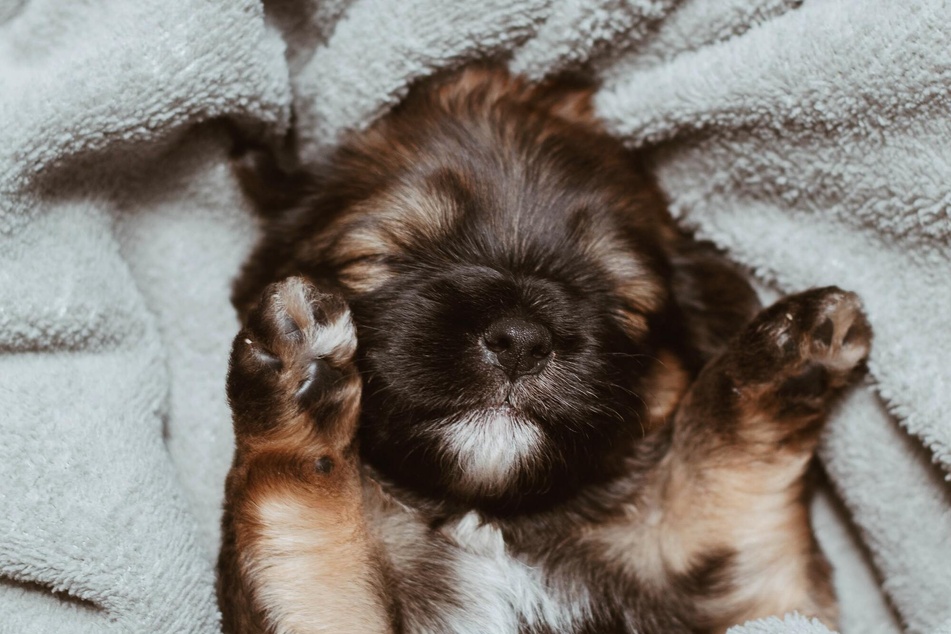
How to train puppies not to bite
When puppies start to bite you, it is usually due to a phenomenon called "teething", and isn't meant as an attack. As puppies grow, and their teeth start to sprout and grow, they will want to chew on things continuously, and will nip at your hands, feet, and even – if you get too close – your nose and ears.
It's nothing to worry about, of course, but you should be careful not to get in your puppy's face in case it tries its new chomper on for size. What's also important is to sternly train them out of these behaviors, so they do not grow up to think that biting is okay.
Here's how to train a puppy to stop biting:
- Ignore the behavior, and whenever your puppy tries to bite you turn around and pay no attention to it for a few minutes.
- Say "no" firmly to undesired behavior, and "yes" to what you want to see.
- Allow your dog to bite and chew on their toys, but always resist if it bites you.
- Create a cycle of praise and redirection: when your puppy is behaving well, it gets rewarded with positive reinforcement, when it doesn't, it gets ignored or scolded.
Biting is a very normal behavior in puppies, but not necessarily one that you should just accept. Don't worry too much, teething generally only happens for two to four months.
How to potty-train a puppy
Potty-training is an essential part of how you prep your puppy for adulthood. The most important part of this is, of course, to get your puppy to stop relieving itself indoors and used to heading out into the wide open world to empty its bladder and bare its bowels.
Here's how to potty-train your puppy:
- Make sure that you are taking your puppy outside at least once every two-to-three hours.
- Give your puppy a particular spot in the garden or park where it goes to the bathroom, and reward it when it sticks to it.
- Feed your dog appropriate food that doesn't badly affect its digestive system.
- Allow it time to get used to going to the bathroom outside, understanding that it takes generally about six months for these strategies to work.
- As always, use negative and positive reinforcement. If it goes inside, then scold it lightly, if it goes outside, then give it a treat.
Potty-training is, of course, incredibly important. This can be a frustrating and rather disgusting process, of course, but keep with these dog training tips and you won't have too much of a problem.
Training your puppy early is crucial
Making sure that you get to your dog while it's young is incredibly important if you want to embed that positive behavior, that love, and that physical and mental fitness that is so important. If you're consistent and push for obedience, you're in for a very well-behaved doggo when it grows up.
The most important thing when you're training your puppy is that you teach little by little, slowly introducing commands, maintaining boundaries, and giving your four-legged friend plenty of rest in between.
Cover photo: Austin Kirk / Unsplash

